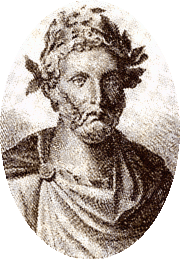

The Perils of Prophecy: Statius’ Amphiaraus and His Literary Antecedents. Discordia fratrum : Aspects of Lucan’s Conception of Civil War Statius’ Thebaid and the Genesis of Hatred. The Angry Poet and the Angry Gods: Problems of Theodicy in Lucan’s Epic of Defeat. Religio … dira loci : Two Passages in Lucan De Bello Civili 3 and Their Relation to Virgil’s Rome and Latium. Caesar and the Mutiny: Lucan’s Reshaping of the Historical Tradition in De Bello Civili 5.237 – 373.

Incest and Fratricide in Seneca’s Phoenissae. 31.Īndromache’s Child in Euripides and Seneca. IV Passion and Civil War in Roman Tragedy and Epic: Seneca, Lucan and Statius 22. The Fasti as a Source for Women’s Participation in Roman Cult. Ceres, Liber and Flora: Georgic and Anti-Georgic Elements in Ovid’s Fasti. Sexual Comedy in Ovid’s Fasti : Sources and Motivation. 17.21) and Some Aspects of Roman Chronology and Cultural History Between 60 and 50 BCE. The Synchronistic Chapter of Gellius (N.A. The Concept of Nature and Human Nature in Quintilian’s Psychology and Theory of Instruction. Quintilian on the Uses and Methods of Declamation. Disowning and Dysfunction in the Declamatory Family. Imitation and Decline: Rhetorical Theory and Practice in the First Century AD. Imitation and Evolution: The Discussion of Rhetorical Imitation in Cicero De oratore 2.87 – 97 and Some Related Problems in Ciceronian Theory. Mime: The Missing Link in Roman Literary History. Roman Experience of Menander in the Late Republic and Early Empire. Maidens in Other-Land, or Broads Abroad: Plautus’ Poenulae Terence and the Familiarization of Comedy. Women of the Demi-Monde and Sisterly Solidarity in the Cistellaria.
Plautus menaechmi perseus project how to#
Domina-tricks, or How to Construct a Good Whore from a Bad One. Stuprum: Public Attitudes and Penalties for Sexual Offences in Republican Rome. Sex, Status and Survival in Hellenistic Athens: A Study of Women in New Comedy. Philemon’s Thesauros as a Dramatization of Peripatetic Ethics Heautontimoroumenos and Adelphoe : A Study of Fatherhood in Terence and Menander. 10.Īct 4 of the Menaechmi: Plautus and His Original. KG, Göttingen ⬁ Gedruckt auf säurefreiem Papier Printed in Germany Content Introduction. PA6011.F36 2010 870.9−dc22 2010011248īibliografische Information der Deutschen Nationalbibliothek Die Deutsche Nationalbibliothek verzeichnet diese Publikation in der Deutschen Nationalbibliografie detaillierte bibliografische Daten sind im Internet über abrufbar. Latin literature − History and criticism. Roman readings : Roman response to Greek literature from Plautus to Statius and Quintilian / by Elaine Fantham. Roman Readings Roman response to Greek literature from Plautus to Statius and Quintilian Moreau's island of lost souls without distracting from what is still a rip-roaring good read.Beiträge zur Altertumskunde Herausgegeben von Michael Erler, Dorothee Gall, Ludwig Koenen, Clemens Zintzen These levels of interpretation add a richness to Prendick's adventures on Dr. While this riveting tale was intended to be a commentary on evolution, divine creation, and the tension between human nature and culture, modern readers familiar with genetic engineering will marvel at Wells's prediction of the ethical issues raised by producing "smarter" human beings or bringing back extinct species. Moreau, confronts dark secrets, strange creatures, and a reason to run for his life. Moreau, a shipwrecked gentleman named Edward Prendick, stranded on a Pacific island lorded over by the notorious Dr. Ranked among the classic novels of the English language and the inspiration for several unforgettable movies, this early work of H. The Island of Doctor Moreau is an 1896 science fiction novel by H.


 0 kommentar(er)
0 kommentar(er)
